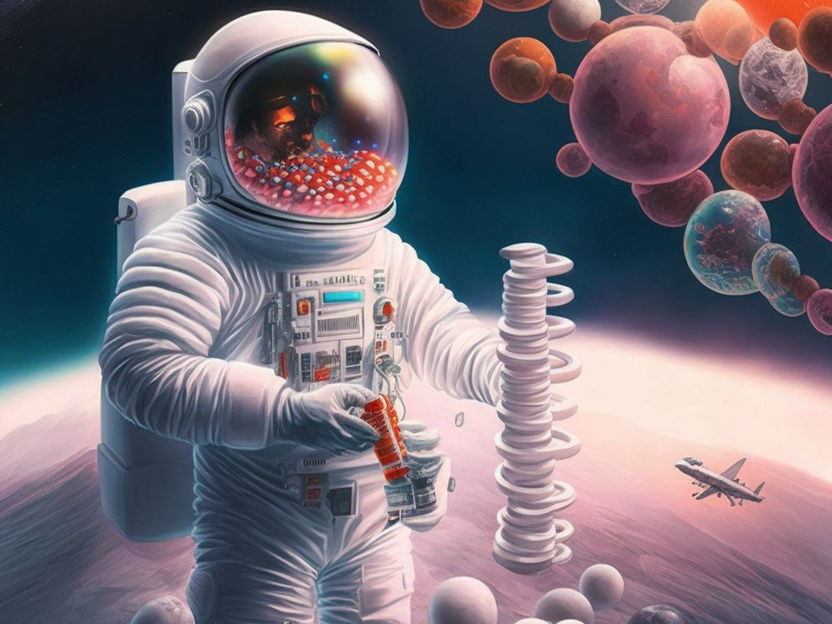Drug discovery and development — in space?
The low-gravity environment could speed up the development and discovery of complex molecules used in medicines
Carrying out scientific experiments in space allows scientists to study and make drugs without gravity, which can lead to surprising results that improve research back on Earth. According to a cover story in Chemical & Engineering News, an independent news outlet of the American Chemical Society, more commercial entities are expanding offerings in low-Earth orbit, which could someday enable more common and affordable drug discovery and manufacture in space.

Symbolic image
Computer-generated image
The low-gravity environment on the International Space Station (ISS) can speed up the development and discovery of complex molecules used in medicines, writes Assistant Editor Shi En Kim. Misbehaving proteins are the culprit behind many diseases, so scientists will often crystallize a protein to better understand its complex structure. When carried out in space, this process can produce larger and more uniform crystals than those grown on Earth. Protein crystallization experiments in microgravity have been instrumental in the design of some cancer drugs. Additionally, because the effects of space travel on the body resemble those of aging, scientists have taken advantage of the unique environment to study aging treatments, including carrying out preclinical trials of two now-approved osteoporosis drugs. In the future, stem cell therapy research could benefit from observations that stem cells can grow more quickly in space.
Currently, access to the ISS for experiments is limited — and competition to get experiments onboard is fierce. It often takes years to prepare for an experiment, and once scientists have results, it could be another several years before they have access again. The ISS is slated to retire in less than a decade, but the rise of the commercialization of space means that researchers may someday have more opportunities to carry out experiments or manufacture drugs in this environment at potentially lower costs. Private companies, such as SpaceX, Northrup Grumman and Blue Origin, are building commercial stations to replace the ISS, and we could be seeing more experiments being performed in orbit with profound impacts on science back on Earth.
Original publication
“Pharma goes to space”; Chemical & Engineering News; 2022
Original publication
“Pharma goes to space”; Chemical & Engineering News; 2022
Organizations
Other news from the department science

Get the life science industry in your inbox
By submitting this form you agree that LUMITOS AG will send you the newsletter(s) selected above by email. Your data will not be passed on to third parties. Your data will be stored and processed in accordance with our data protection regulations. LUMITOS may contact you by email for the purpose of advertising or market and opinion surveys. You can revoke your consent at any time without giving reasons to LUMITOS AG, Ernst-Augustin-Str. 2, 12489 Berlin, Germany or by e-mail at revoke@lumitos.com with effect for the future. In addition, each email contains a link to unsubscribe from the corresponding newsletter.

















































